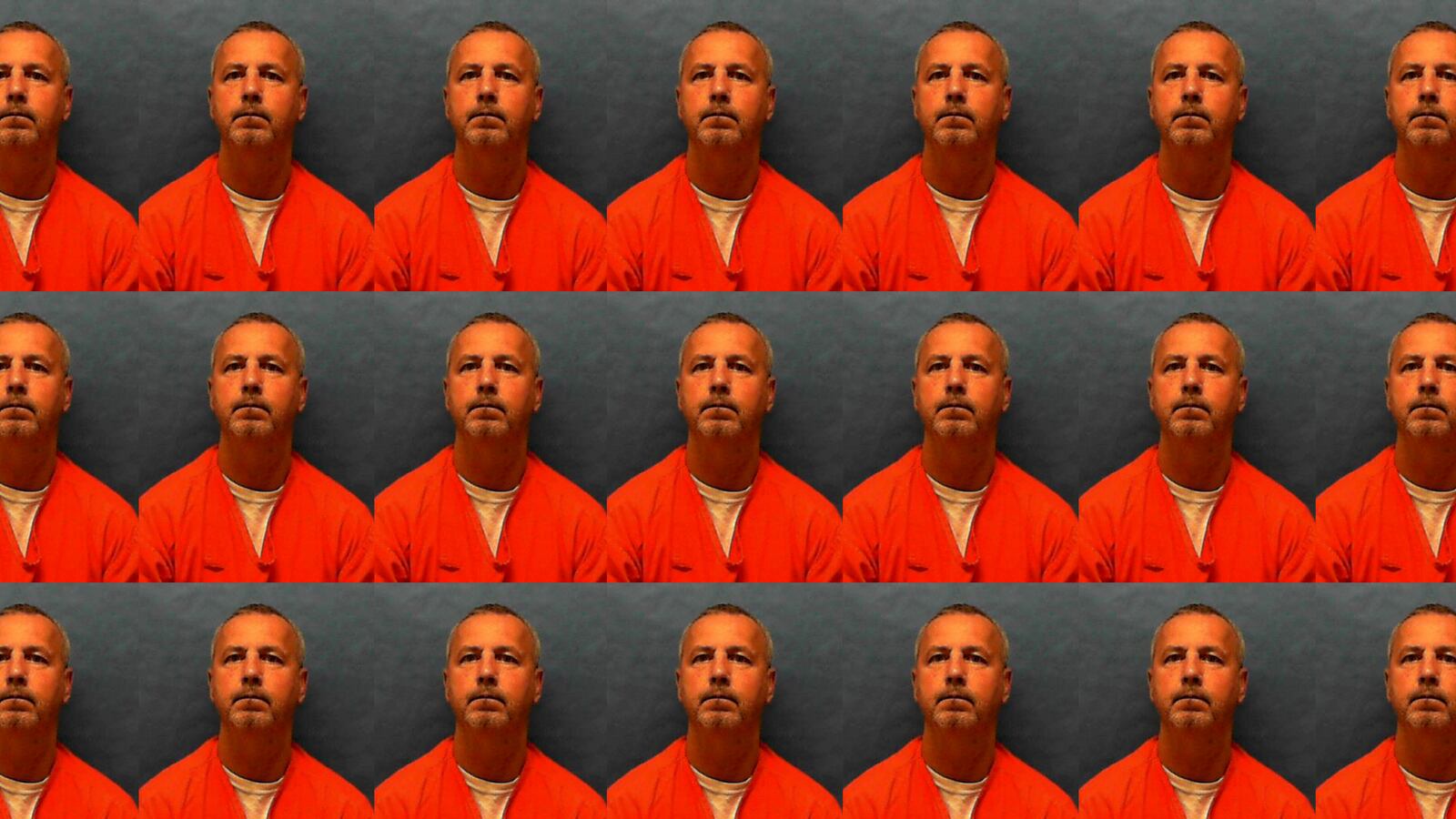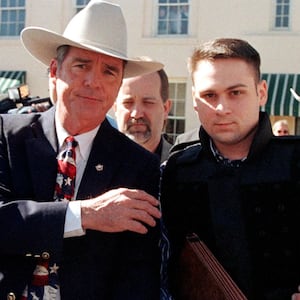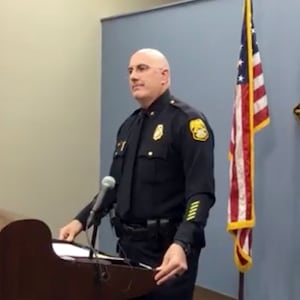Gary Ray Bowles—the so-called “I-95 Killer” who savagely slayed six gay men during an eight-month murder spree in the 1990s—was executed in Florida on Thursday night after the Supreme Court rejected a last-ditch appeal.
Bowles, 57, ate a final meal of cheeseburgers, French fries, and bacon before receiving a lethal injection at 10:58 p.m. at Florida State Prison in Starke, according to officials. The execution, which was scheduled for 6 p.m., was delayed for several hours while Bowles’ final appeal was considered by the court. His lawyers argued that he was intellectually disabled and therefore should not be executed.
He was sentenced to death in 1997 after confessing to the half-dozen murders, which all took place between March and November 1994 along the eastern coastline.
The serial killer encountered most of his victims at gay bars—then charmed his way into their homes by offering them sex for money, authorities said. Once inside, Bowles would strangle his victims, take their credit cards and identification, and shove an object down their throats.
Traveling up Interstate 95, he committed three of the murders in Florida, two in Georgia, and one in Maryland. The murders garnered national attention when Bowles made the FBI’s Most Wanted List just three days before he was brought in for questioning after his last slaying.
Bowles is now the 99th person to have been executed in Florida since the U.S. Supreme Court reinstated the death penalty in 1976.
“Each of the murders was brutal,” Bernie de la Rionda, the Jacksonville prosecutor in Bowles’ trial, told the Daytona Beach News-Journal. “It was not an instant death, like somebody getting shot and dying from that gunshot. It was a life-and-death struggle.”
Bowles’ murder spree began on March 14, 1994, when he killed 59-year-old John Hardy Roberts inside his home on Daytona Beach. As he did with most of his victims, Bowles stuffed toilet paper and rags into Roberts’ mouth and throat after his death.
He accidentally left probation papers at the scene of Roberts’ murder and was also spotted on a camera trying to get money from the man’s ATM account, making it easier for authorities to identify him.
Exactly one month later, 38-year-old David Jarman was found fatally beaten and strangled in his Maryland basement. His credit cards and car were missing.
On May 5, 72-year-old Milton Bradley was found strangled on a Savannah, Georgia, golf course. The disabled World War II veteran had been spotted with Bowles several times in a gay bar near his home.
A week later, Alverson Carter was found fatally stabbed in Atlanta, about four hours away.
“We know there have been several murders up and down the East Coast that have the same exact” patterns, said Jim Hardee, a Jacksonville assistant state attorney, at the time.
His fifth victim, 38-year-old Albert Morris, was discovered on May 19. He’d been gagged, beaten, strangled, and then fatally shot in the head. Authorities said Morris met Bowles at a gay bar and let him stay at his house for about a week before he was murdered. His car and credit cards were also stolen.
Three days after Morris’ body was discovered, law enforcement put out a bulletin: “Bowles frequents homosexual bars where he meets and befriends patrons. All known victims were met at such establishments.”
Bowles was finally arrested on Nov. 23, 1994, a few days after killing his sixth victim, 42-year-old Walter Hinton, in Jacksonville, Florida. Authorities said he met Hinton in Jacksonville Beach, under the fake name Timothy Whitefield, and moved into his mobile home days later. One day after moving in, he dropped a 40-pound cement block on Hinton’s head as he was sleeping and then proceeded to strangle him.
He allegedly stayed at the mobile home for a few days while Hinton’s dead body remained on the floor. He was finally caught at his job at a day labor center after the police were tipped off to his whereabouts. While being questioned by the Jacksonville Sheriff’s Office, Bowles confessed to all six murders, authorities said.
“He has confessed to six and says that is all he did,” Jacksonville Sheriff Jim McMillan told reporters after Bowles’ arrest. “All of us are relieved he is off the street. There is no doubt there would have probably been more.”
Authorities learned Bowles used five different Social Security numbers and went by several aliases, including Gary Ray Boles and Joey Pearson. He often used the first names James, Mike, and Mark.
Bowles pleaded guilty to Hinton’s murder in 1996 and was sentenced to death a year later. At his sentencing hearing, according to local reports, de la Rionda argued that Bowles was motivated by his hatred for gay people and desire for financial gain. The following year, after pleading guilty to two more murders, Bowles received another two consecutive life sentences.
In 1998, the Florida Supreme Court overturned Bowles’ death sentence when they determined that the court mishandled the case by allowing the jury to hear de la Rionda’s theory that Bowles hated gay people. A year later, a second jury unanimously re-sentenced Bowles to death within an hour of deliberation.
Until his execution, Bowled lived in isolation on death row at the Florida State Prison.









